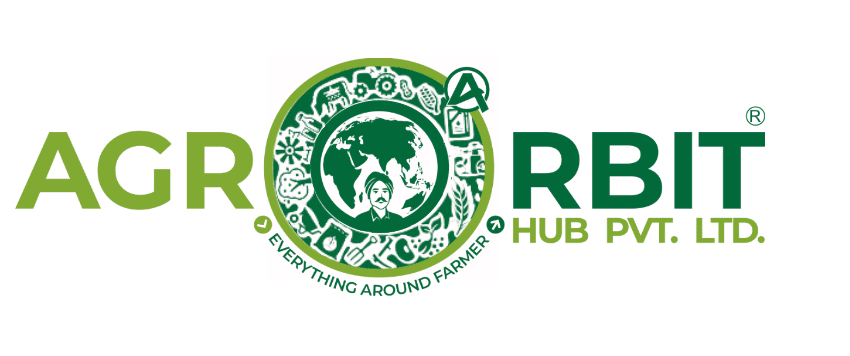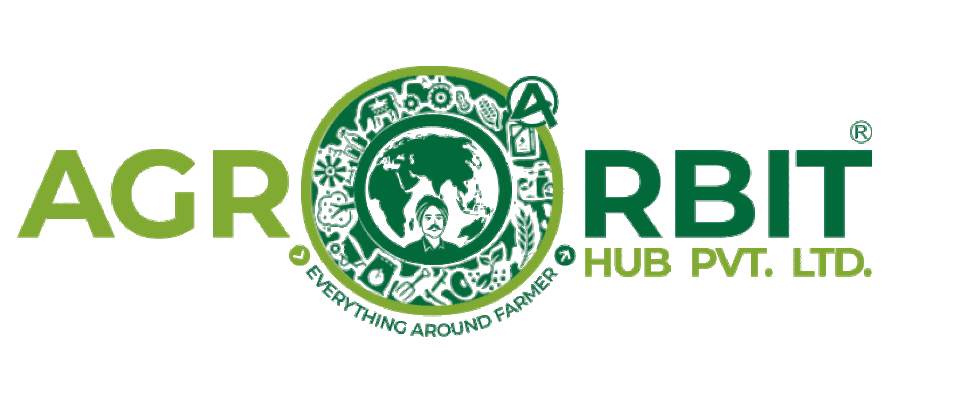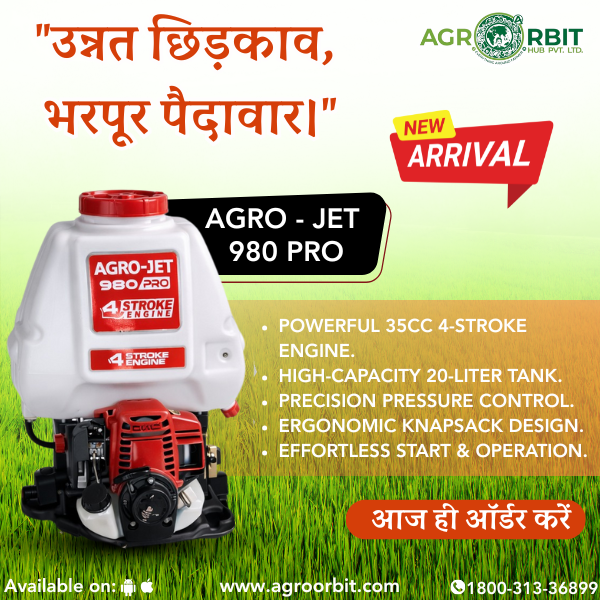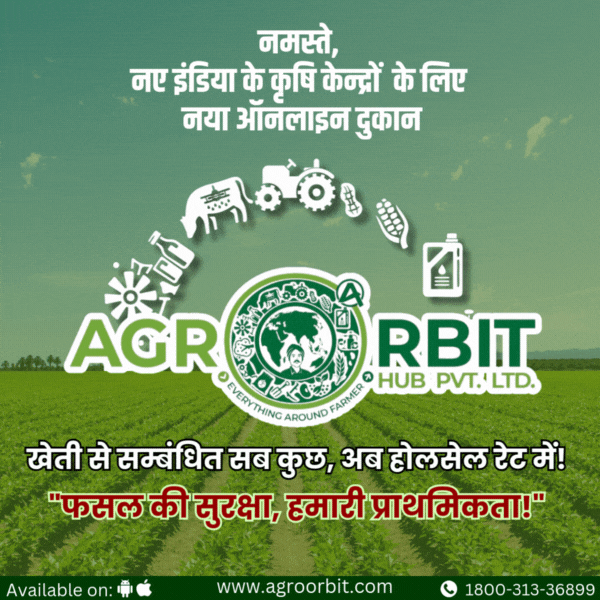

Empowering Farmers with the Perfect Pesticide Selection
Stocking
the Right Pesticide Products: Understanding Farmer Needs
In the ever-evolving realm of agriculture, the battle
against pests and diseases is a constant challenge for farmers. The selection
of the right pesticide products stands as a pivotal factor in safeguarding crop
health and ensuring optimal yields. However, the process of choosing these
products transcends mere effectiveness—it necessitates a profound understanding
of farmers' distinctive needs, the ecosystems they operate in, and their
commitment to sustainable practices.
In this comprehensive exploration, we delve into the critical aspects of understanding farmer needs when stocking pesticide products. From tailoring solutions to crop types to promoting environmental responsibility, each facet contributes to a holistic approach aimed at fostering responsible and sustainable pest management practices.
From Our Shelves to Your
Fields: Precision Pesticides
1.
Tailoring Solutions to Crop Types
Every crop
faces its unique set of challenges when it comes to pests and diseases. What
works effectively for one crop may not be suitable for another due to
differences in susceptibility and pest pressures. For instance, the pests that
trouble tomatoes, such as whiteflies or tomato hornworms, might not even affect
crops like cucumbers or potatoes. Therefore, understanding which crops are
predominant in a specific region is crucial for agricultural suppliers.
By gaining
insights into the prevalent crops, agricultural suppliers can ensure they stock
the right pesticides tailored to each crop's specific needs. This involves
offering a diverse range of products designed to target the pests commonly
associated with each crop. For example, for apple orchards, suppliers may stock
insecticides effective against apple maggots or codling moths, while for wheat
fields, herbicides targeting grassy weeds like wild oats or broadleaf weeds
like cleavers may be more appropriate.
Providing
customized solutions ensures that farmers have access to the most suitable pest
management tools for their particular crops. Whether it's apples, lettuce,
wheat, or cotton, offering tailored solutions helps optimize pest control and
crop protection, ultimately enhancing farm productivity and profitability.
2.
Addressing Pest Pressures
Pests are
not only influenced by the type of crop but also by various factors such as
geographic location, climate, soil conditions, and farming practices.
Identifying the prevalent pests in a specific area and understanding their life
cycles are essential steps in effective pest management.
Agricultural
suppliers play a critical role in addressing pest pressures by stocking
pesticides that precisely target these threats. For example, in regions where
aphids are rampant, having insecticides that effectively combat aphid
infestations is crucial for protecting crops such as vegetables, fruits, or
ornamentals. Similarly, in cotton fields plagued by bollworms, offering
products specifically designed to control bollworm infestations empowers
farmers to safeguard their crops successfully.
By staying
informed about local pest dynamics and offering targeted pest control
solutions, agricultural suppliers help farmers mitigate the risks posed by
pests and minimize crop losses. This not only contributes to the sustainability
and profitability of farming operations but also ensures food security and
supply chain resilience.
3.
Balancing Effectiveness with Environmental Responsibility
In today's
agricultural landscape, there is a growing emphasis on sustainability,
environmental stewardship, and consumer demand for food produced with minimal
environmental impact. As a result, agricultural suppliers are increasingly
focused on stocking pesticides with lower environmental footprints.
This
includes products with reduced toxicity to non-target organisms, such as
beneficial insects or soil microorganisms, and shorter persistence in the
environment to minimize ecological harm. By offering environmentally
responsible options, agricultural suppliers align with farmers' preferences and
regulatory standards while promoting sustainable agriculture practices.
Farmers are
increasingly seeking products that help mitigate ecological harm while ensuring
the health and productivity of their crops. Hence, offering these options not
only supports farmers in their sustainability efforts but also contributes to
safeguarding crop health and environmental well-being. Moreover, by promoting
the use of environmentally friendly pesticides, agricultural suppliers help
preserve biodiversity, soil health, and water quality, ultimately contributing
to a more sustainable and resilient agricultural system.
4.
Providing Versatile Application Methods
Farmers'
preferences for pesticide application methods vary widely depending on factors
such as crop type, pest pressure, and available resources. Some may opt for
foliar sprays for their quick action and broad coverage, while others may
prefer seed treatments or soil drenches for targeted protection. Agricultural
suppliers play a critical role in meeting these diverse needs by stocking a
range of formulations and application options.
Foliar
sprays are popular for their convenience and ability to cover large areas
rapidly. They are effective for controlling pests that feed on leaves and other
above-ground plant parts. Seed treatments, on the other hand, involve coating
seeds with pesticide formulations to protect them from soil-borne pests and
diseases during germination and early growth stages. Soil drenches, also known
as soil injections or soil applications, involve applying pesticides directly
to the soil around the plant roots to target pests residing in the soil.
By offering
a variety of formulations such as liquid concentrates, granules, dusts, and
soluble powders, agricultural suppliers enable farmers to choose the most
suitable method for their specific crop and pest management needs. This
enhances both efficacy and ease of use, allowing farmers to optimize pest
control while minimizing labor and input costs.
5.
Supporting Integrated Pest Management (IPM)
Integrated
Pest Management (IPM) is a comprehensive approach to pest control that
emphasizes the use of multiple tactics to manage pests effectively while
minimizing reliance on chemical pesticides. IPM strategies include prevention,
monitoring, cultural practices, biological control, and chemical control, used
in a coordinated and sustainable manner.
Agricultural
suppliers can support the adoption of IPM practices among farmers by offering
products that complement IPM strategies. This may include biological control
agents such as predatory insects, parasitic wasps, and nematodes, which help
control pest populations naturally. Pheromone traps can be used to monitor pest
populations and disrupt their mating patterns, reducing the need for chemical
pesticides. Insect growth regulators can interfere with the development and
reproduction of pests, providing long-term control with minimal environmental
impact.
By
promoting the use of IPM strategies and providing farmers with access to a
diverse range of pest management tools, agricultural suppliers contribute to
the development of a balanced ecosystem and reduce reliance on chemical
pesticides. This not only benefits farmers by reducing input costs and
minimizing environmental risks but also supports long-term sustainable
agriculture practices.
6.
Empowering Through Education
Empowering
farmers through education is essential for promoting responsible pesticide use
and ensuring safety and efficacy. Agricultural suppliers can provide farmers
with information and training on pesticide selection, application techniques,
safety precautions, and alternative pest management methods through educational
initiatives, workshops, and collaborations with agricultural extension
services.
Educational
programs can cover topics such as pesticide toxicity, environmental risks,
proper handling and storage practices, integrated pest management, and the
importance of following label instructions. By enhancing farmers' understanding
of pesticide products and promoting responsible use practices, agricultural suppliers
empower them to make informed decisions and minimize risks to human health and
the environment.
7.
Compliance with Regulations and Safety Standards
Compliance
with regulations and safety standards is essential for ensuring the responsible
use and handling of pesticide products. Agricultural suppliers must familiarize
themselves with local, state, and federal regulations regarding pesticide
storage, handling, transportation, and disposal to ensure compliance.
Additionally,
agricultural suppliers should offer products that meet safety standards and
provide guidance on proper storage and handling practices to farmers. This
includes ensuring that pesticides are stored in appropriate containers, kept
away from food, water sources, and sensitive areas, and disposed of safely
according to regulatory guidelines.
By
promoting compliance with regulations and safety standards, agricultural
suppliers contribute to the well-being of farmers, farmworkers, and the
surrounding community. They help minimize the risks of pesticide exposure and
environmental contamination while supporting sustainable agriculture practices.
Stocking
the right pesticide products offers a myriad of advantages, each contributing
to the overall efficiency, effectiveness, and sustainability of pest management
practices in agriculture. Here are some key advantages:
Advantages of stocking of right pesticide product
1.
Enhanced Crop Protection: The primary advantage of stocking the right
pesticide products is the enhanced protection of crops against pests and
diseases. Tailoring solutions to specific crop types and pest pressures ensures
that farmers have access to the most suitable pest management tools, leading to
better control of pests and reduced crop losses.
2. Improved
Crop Yield and Quality: Effective pest management facilitated by the use of
appropriate pesticide products can result in improved crop yield and quality.
By minimizing the damage caused by pests, farmers can achieve higher yields and
produce crops of superior quality, thereby enhancing their profitability and
competitiveness in the market.
3. Cost
Savings: Stocking the right pesticide products helps farmers optimize their
pest management strategies, leading to cost savings in various aspects of crop
production. By using targeted pesticides that are effective against specific
pests, farmers can reduce the need for excessive pesticide applications,
minimize input costs, and maximize resource efficiency.
4.
Reduced Environmental Impact: Selecting pesticide products that are
tailored to crop types and pest pressures can contribute to reducing the
environmental impact of pesticide use in agriculture. By using products with
lower toxicity to non-target organisms and shorter persistence in the
environment, farmers can minimize ecological harm while effectively managing
pests.
5. Promotion
of Sustainable Agriculture: Stocking the right pesticide products aligns
with the principles of sustainable agriculture by promoting responsible pest
management practices. By offering environmentally friendly options and
supporting integrated pest management approaches, agricultural suppliers
contribute to the long-term sustainability of agricultural systems and the
preservation of natural resources.
6.
Increased Farmer Satisfaction: Providing farmers with access to the most
suitable pesticide products tailored to their needs enhances their satisfaction
and confidence in pest management solutions. Farmers are more likely to achieve
successful pest control outcomes and realize the benefits of using effective
and sustainable pest management practices, leading to greater satisfaction with
their agricultural inputs and suppliers.
7. Compliance
with Regulatory Standards: Stocking the right pesticide products ensures
compliance with regulatory standards and safety requirements governing
pesticide use in agriculture. By offering products that meet safety standards
and providing guidance on proper handling and application practices,
agricultural suppliers help farmers adhere to regulatory guidelines and
minimize the risks associated with pesticide use.
Conclusion
In conclusion, stocking the right pesticide products is not
just about providing effective solutions; it's about aligning with farmers'
needs, environmental considerations, and regulatory standards. By tailoring
solutions to crop types, addressing pest pressures, promoting sustainability,
offering versatile application methods, supporting integrated pest management
practices, empowering through education, and ensuring compliance with
regulations, agricultural suppliers can effectively meet the diverse needs of
farmers while fostering responsible and sustainable pest management practices.
As stewards of the agricultural landscape, it is imperative for agricultural suppliers to prioritize the well-being of farmers, farmworkers, and the environment. By embracing a holistic approach that balances effectiveness with environmental responsibility, agricultural suppliers can play a pivotal role in ensuring the long-term viability and resilience of agricultural systems. Together, we can cultivate a future where bountiful harvests coexist harmoniously with ecological stewardship and sustainability.
Note : This research is based on google we are not responsible for any other circumstances.






